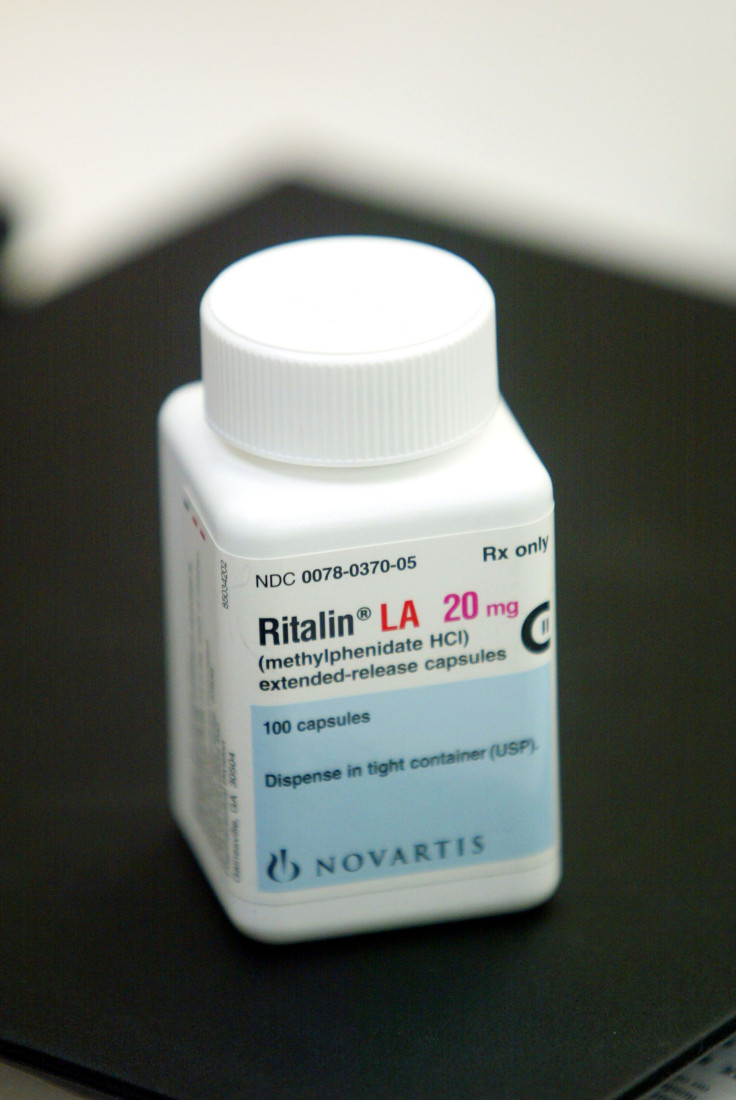How Long-Term Adderall Use Affects The Brain


This question originally appeared on Quora. Answer by Alex K. Chen.
Short summary: Adderall/Dexedrine can be neurotoxic in the long run (by damaging dopamine neurons) while Ritalin does not have as much neurotoxicity potential. Surprisingly, when Ritalin *and* Adderall are mixed together, Ritalin can actually help counteract Adderall's neurotoxicity potential.
Whether or not Adderall's neurotoxicity applies to those who take doses relevant to ADD is unclear. Most of the studies use amphetamine does higher than those used for treating ADHD, but Amphetamine Treatment Similar to That Used in the Treatment of Adult Attention-Deficit/Hyperactivity Disorder Damages Dopaminergic Nerve Endings in the Striatum of Adult Nonhuman Primates uses doses similar to those used for treating ADHD (though I'm not sure if this paper shows neurotoxicity as opposed to mere downregulation).
Tolerance can happen with either, but tolerance is not neurotoxicity as it can be reversed by taking breaks.
When one takes either of these drugs when young, there can be subtle developmental effects too. They could lead to neurons "believing" that there is more dopamine than there actually is, which could lead to mature circuits with reduced dopamine signalling once they fully mature (see Performance enhancement at the cost of potential brain plasticity: neural ramifications of nootropic drugs in the healthy developing brain for more details).
So in short - there are three effects: tolerance, neurotoxicity, and developmental. Tolerance is reversible, while neurotoxicity is not. Developmental effects are the most complicated, and still difficult to adequately summarize.
Long answer:
It depends on many factors
(I will use the word dexedrine interchangeably with Adderall, since they're mostly similar - Adderall is 75% d-amphetamine and 25% l-amphetamine, and Dexedrine is 100% d-amphetamine)
As someone with ADD who has been concerned about their long term effects, I have done a huge amount of research into this. I'll update this post with time.
First of all, regarding the cardiovascular risks: Science Daily shows that there is no increase in severe cardiovascular events for children with no pre-existing heart abnormalities. This could be different for older adults who may be more vulnerable to getting heart attacks, however. Most young people shouldn't worry about the cardiovascular effects.
Taking either of them could result in tolerance (see here - discussed in [1], and Long-Term Stimulant Treatment Affects Brain Dopamine Transporter Level in Patients with Attention Deficit Hyperactive Disorder). This means that you may need to get higher doses over time in order to achieve the same effect. However, numerous people with ADD are able to achieve a stable dose of either drug over time. In any case, tolerance is reversible, and you can prevent it by taking breaks once in a while.
[1] Link shows that both amphetamine and methylphenidate produce deficits in striatal dopamine markers after treatment, but that the markers recovered in methylphenidate-treated mice but not amphetamine-treated ones (indicating something reversible in methylphenidate but possibly not amphetamine). Although it didn't identify the mechanism and a 2-week waiting period may not be enough to extrapolate permanent effects.
Neuroscience News showed there is a possible mechanism of tolerance (apparently, the brain compensates by increasing the number of DAT transporters). Also see Long-Term Stimulant Treatment Affects Brain Dopamine Transporter Level in Patients with Attention Deficit Hyperactive Disorder.
Now to discuss the possible effects beyond tolerance
There is a real difference between the two, however. Adderall is a dopamine release agent, whereas Ritalin is a dopamine reuptake inhibitor. Both of them increase dopamine signalling by increasing the amount of dopamine in the synapse (so more dopamine ends up binding to the dopamine receptors in the postsynaptic neuron). The key difference is their action on the dopamine transporter, which generally moves a lot of the dopamine in the synapse back into the presynaptic neuron - which reduces the amount of dopamine in the synapse, and dopamine signalling. Ritalin increases dopamine signalling by effectively blocking the dopamine transporter. Meanwhile, Adderall does it by reversing the action of the dopamine transporter, which effectively forces even more dopamine into the synapse (where it can increase dopamine signalling even further).
The mechanism of amphetamine (the chemical name for Adderall) is shown below:

There is another difference between the two: and that difference is related to the activity of the VMAT-2 transporter. This transporter effectively transports dopamine from the cellular cytosol into synaptic vesicles (pictured below), which effectively sequesters up the dopamine and prevents it from degradation by MAO enzymes + auto-oxidation.

The difference is this: Amphetamine effectively inhibits the activity of the VMAT-2 transporter, so it packages up less dopamine. Methylphenidate (the chemical name for Ritalin), on the other hand, enhances the activity of the transporter. And this difference is actually what makes amphetamine neurotoxic and methylphenidate comparatively benign. The thing is, dopamine is a very reactive molecule when it isn't packaged by VMAT-2, and when it autooxidizes in the presynaptic cytosol, it can actually damage the presynaptic terminal. Amphetamine accelerates this, and causes presynaptic terminal damage. Meanwhile, methylphenidate prevents it from happening.
Surprisingly enough, this produces interesting results, which led to this paper. Basically, that paper shows that methylphenidate actually attenuated the deficits associated with damage induced by methamphetamine (methamphetamine does all the damage of amphetamine , but adds A LOT to that damage). So surprisingly enough, methylphenidate actually can attenuate the neurotoxicity associated with amphetamine, if taken along with it. Keep in mind, though, that methylphenidate has a shorter half-life than amphetamine.
Some of dopamine's neurotoxicity is caused by monoamine oxidase A (MAO) in the presynaptic terminal. When MAO catalyzes the degradation of dopamine, hydrogen peroxide (H2O2) is produced as a result, and this H2O2 can go on to damage the presynaptic terminal. Methylphenidate effectively reduces the amount of MAO degradation of dopamine in the presynaptic terminal by blocking dopamine reuptake - this reduces the amount of H2O2 released (but dopamine can still be degraded in the extracellular synapse and it's unclear if this also does damage).
Has amphetamine's neurotoxicity (relative to methylphenidate) been experimentally demonstrated?
Here's one of the papers:
As the use of amphetamine in the treatment of ADHD has increased, a large body of preclinical data has accrued indicating that amphetamine has the potential to damage brain dopamine-containing neurons in experimental animals. In particular, animals treated with amphetamine develop lasting reductions in striatal dopamine, its major metabolite dihydroxyphenylacetic acid (DOPAC), its rate-limiting enzyme tyrosine hydroxylase, its membrane transporter (DAT), and its vesicular transporter (VMAT2) (Gibb et al., 1994; McCann and Ricaurte, 2004). Anatomic studies indicate that lasting dopaminergic deficits after amphetamine are due to damage of dopaminergic nerve endings in the striatum, with sparing of dopaminergic nerve cell bodies in the substantia nigra.
In particular, the results of the present study indicate that an oral regimen of amphetamine, modeled after dosing regimens used in patients with ADHD, engenders plasma amphetamine concentrations that result in toxicity to brain dopaminergic axon terminals in baboons and squirrel monkeys. These results may have implications for the pathophysiology and treatment of ADHD and raise the question of whether or not plasma monitoring might be indicated in ADHD patients receiving higher, chronic doses of amphetamine.
Anyways, here's another very good thread discussing this theme:
And a very comprehensive lit review article (discusses what I said here + more).
That all being said, amphetamine's effects are not universally bad. It can increase neurogenesis, perhaps because many individuals with ADD are so distracted that their distraction effectively inhibits neural pathways from forming.
Amphetamine/methylphenidate can help promote the formation of these neural pathways by reducing this noise. See below:
In early studies, high doses of amphetamine, comparable to amounts used by addicts, were shown to damage dopaminergic pathways. More recent studies, using therapeutic regimens, appear contradictory. One paradigm shows significant decreases in striatal dopamine and transporter density after oral administration of “therapeutic” doses in primates. Another shows morphological evidence of “trophic” dendritic growth in the brains of adult and juvenile rats given systemic injections mimicking “therapeutic” treatment. Imaging studies of ADHD-diagnosed individuals show an increase in striatal dopamine transporter availability that may be reduced by methylphenidate treatment
And from the mentioned lit review:
In contrast to concerns about potential adverse effects of amphetamine on the brain during aging, it is remarkable that the reduction of the heightened risk for substance abuse that is otherwise associated with ADHD by the initiation of stimulant treatment during childhood appears to be accompanied by a congruent reduction in structural brain pathology. Unmedicated children with ADHD had smaller brain white matter volume than medicated children with ADHD (−8.9%, P<.001) or children without ADHD (−10.7%, P<.001), suggesting that early stimulant treatment may normalize brain white matter volume in ADHD 182.
The mentioned lit review also says that amphetamine appears to be less neurotoxic in younger primates, as compared to older primates. With that being said, there is one study that says that high doses of amphetamine in adolescence can impair adult working memory. With that said, the study was done in rats that didn't even have ADD, so it may not be that applicable. But it is still something that may merit consideration.
However... A recent paper suggests that methylphenidate exposure can increase inflammation and dopamine neuron loss in the basal ganglia, and that extracellular dopamine can auto-oxidized and get degraded too... So methylphenidate may not be as innocuous as once believed (though I would not be too concerned yet). There will definitely be a need of more research on this.. See further discussion at Methylphenidate neurotoxic? - Brain Health, and the comments at Methylphenidate Exposure Induces Dopamine Neuron Loss and Activation of Microglia in the Basal Ganglia of Mice.





















